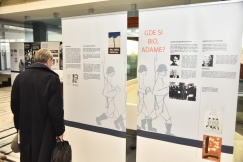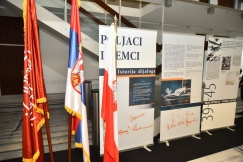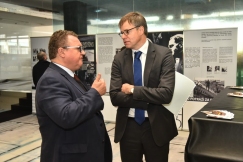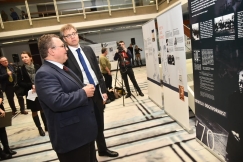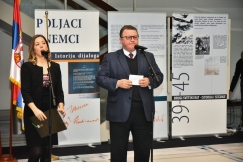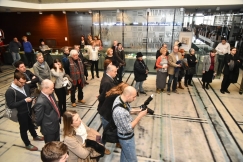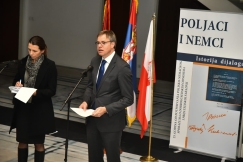An exhibition entitled “Poles and Germans – the History of Dialogue” has opened at the National Library of Serbia to mark the 25th anniversary of the signing of the Polish-German Agreement on good neighbourly relations and friendly cooperation.
The goal of the exhibition is to present Polish-German relations from the outbreak of World War II to the present day.
The exhibition was formed on the basis of the permanent exhibition “Courage and Reconciliation” in Krzyżowa near Świdnica, which was prepared by the Museum of Polish History, in cooperation with the Krzyżowa Foundation for European Understanding, to commemorate the 25th anniversary of the holding of the Mass of Reconciliation.
The patron of the “Courage and Reconciliation” exhibition is the Ministry of Culture and National Heritage of the Republic of Poland.
The exhibition follows the history of relations between Poles and Germans in the 20th century and was opened in Belgrade by H.E. Polish Ambassador to Serbia Tomasz Niegodzisz and H.E. German Ambassador to Serbia Axel Dittmann.
